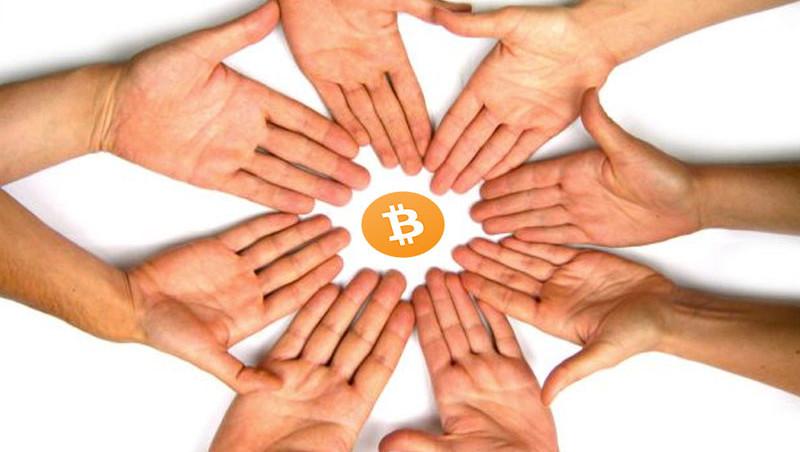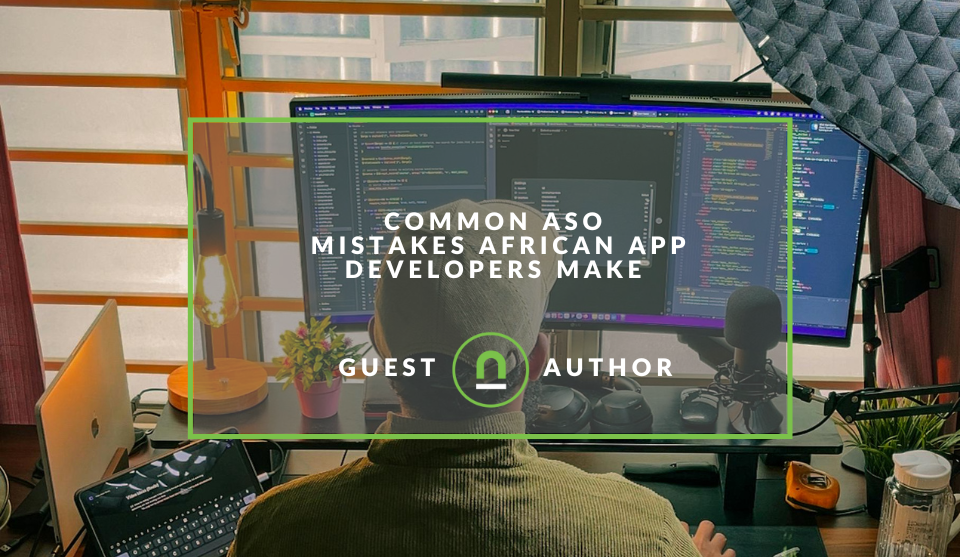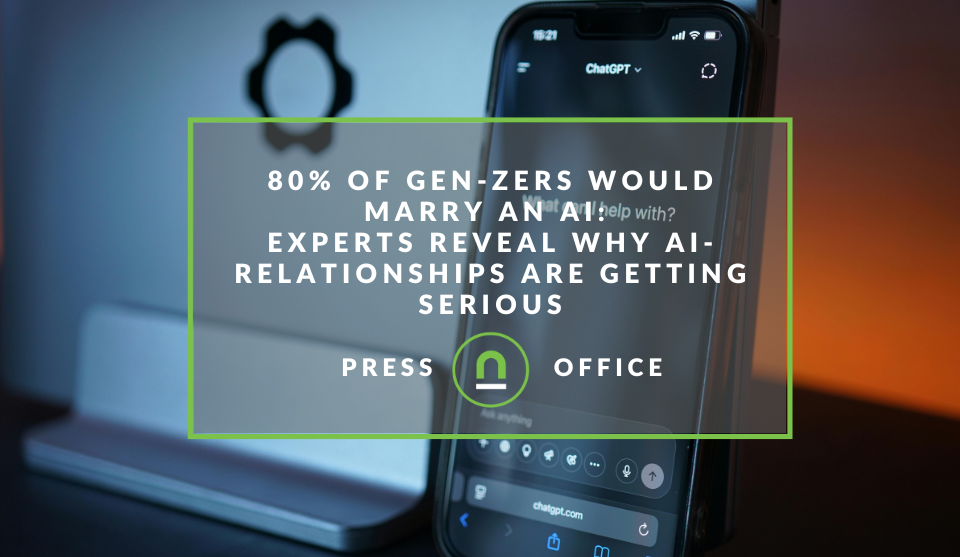Recent posts

Press Releases
Rehab Your Knee: A Free, Evidence-Based Guide to Smarter Recovery
12 February 2026

Money Talks
XRP vs. Stablecoins: Which Is Better for Cross-Border Payments in 2026?
28 January 2026

Press Releases
Sleep Expert Cautioning Against TikTok’s ‘Mouth Taping’ Trend
28 January 2026

Press Releases
Why Vintage Watches Are the Hottest Trend in 2026
27 January 2026
Popular posts
Extravaganza
Trending Music Hashtags To Get Your Posts Noticed
24 August 2018
Geek Chic
How To Fix iPhone/iPad Only Charging In Certain Positions
05 July 2020
Extravaganza
Trending Wedding Hashtags To Get Your Posts Noticed
18 September 2018
Money Talks
How To Find Coupons & Vouchers Online In South Africa
28 March 2019
Why Venture Philanthropy Can Thrive In A Decentralised Economy
12 June 2018 | 0 comments | Posted by Che Kohler in Money Talks
I've been a cryptocurrency investor and enthusiast for some time now and what initially attracted me to the sector was the relative ease with which I could make money buying and selling these digital assets. I was officially hooked and wanted to know more and decided to dive into researching and blogging about my findings.
Over the past few months, I've learned so much about blockchain, cryptocurrency and decentralisation reading through literally 100s of whitepapers, engaging with community members and finding myself joining this little gang of misfits in our little corner of the internet. In my time as a cryptocurrency enthusiast, I've come to realise this community has some of the most gracious people you could ever find.
We are all so excited about this technology and put our money where my mouth is. I've personally given away some cryptocurrency to reward someone for quality content, or to fund a project and received my fair share of donations in return. This comradery got me thinking, can this ideology be applied on a larger scale. When looking at all the cryptocurrency projects available the majority if not all are geared towards the established decentralised systems with the aim of disrupting them by applying blockchain technology and while this will benefit many people the majority of the world will not see a penny from it.
At this rate, blockchain will suffer from the same centralisation issues and concentration of wealth that the current system has, bar a few exceptions. This train of thought continued to bug me until I started watching a recent episode of Billions, specifically episode 4 of season 3 where Bobby meets with a charity he sponsors.
He chats openly with a fellow contributor who suggests the charity pivot into a venture philanthropy organisation, and that's when the idea hit me.
What is venture philanthropy?
Venture philanthropy and social investment are about bridging the gap between corporate and non-profit organisations. It requires the matching of philanthropy with the spirit of investment, resulting in a high-engagement and long-term approach to creating social impact.
So what that means is they fund specific projects that will have a social impact, create jobs and improve the standard of living for underprivileged communities but at the same time ensuring that there is a return on investment.
The problem with venture philanthropy
While I'm all for creating sustainable development, there are plenty of pitfalls that derail what venture philanthropy can achieve. Bridging the gap and putting venture capitalists into the same room non-profits is always going to cause friction and finding a balance between the schools of thought and getting consensus on what is the best way forward is a slow and arduous process.
If the VP is NPO dominated
On the one
They live out their so-called dream and draw a salary and regardless of the underlying impact of the project they do pretty well for themselves while the investors have written off their investment long ago. Let's face it NPO's are not performance metric types and are happy to provide anecdotal evidence of how they helped 2 or 3 people from hardship rather than provide actual figures.
When a VP is run like this, the people on the ground suffer as they never learn to sustain themselves and in some cases funding is pulled or runway is burned through before it can create its own revenue and the project goes belly up.
If the VP is venture capital dominated
On the other side of the coin, one of the biggest criticisms in venture philanthropy though is the fact that NPO's are easily exploited by the investors. When a venture philanthropy project is formed institutional money, or even private equity is supplied to fund the project. These funds are seen as a donation and are then written off for tax purposes which already offsets a large cost to the investor.
Projects like these are also able to get preferential treatment from governments and other institutions since its seen as social upliftment program rather than a hybrid business. Those on the ground are often exploited as cheap labour or used as an angle for marketing and PR to gain momentum and drive interest. Once the project begins to turn a profit the investor then gets paid dividends making this sort of venture a lucrative exercise for those at the top. Those on the ground may have a job now but no real control or influence over the direction of the project.
Which begs the question, is that really empowering these people? Is minimum wage for a few people enough to claim social impact?
Measuring the impact of VP
Another issue plaguing this sector is agreeing on what defines success, is it numbers in the bank, jobs created, people served, lives changed or influenced and how do we combine both the quantitative and the qualitative to match. You can't simply "measure results" at nonprofits the way you could at companies—"reducing illiteracy," for example, was a harder objective to track than "selling subscriptions".
To me, this is more an argument based on ideologies and not fact. Businesses are used to looking at raw numbers while NPO's are used to listening to stories and qualitative data. These are two different forms of data collection, but it doesn't mean it cannot be captured, collated and analysed in order to establish trends and measure impact.
How cryptocurrency and blockchain can be applied to VENTURE PHILANTHROPY
So now that you know what venture philanthropy is and its shortcomings are, you're probably asking why the hell was he going on about cryptocurrency earlier. There is a method to my madness and will now try to explain how these two seemly unrelatable topics can go hand in hand. Before we begin, I'd like to state that for the basis of this argument I'll be using the example of a simple bakery when I need to attach real-world applications to the concepts below.
Ease of raising funds
If you've tried to raise funds for an NPO before you'll know it's not easy looking for individuals, institutions, businesses or foundations and then once you've found them pitching them to fund you for the next year or so. Like any sort of investment, this is a relationship building based process that takes time and effort and can often be the first hurdle that stops the project from getting off the ground.
This is where cryptocurrency can really flex its muscles. ICO's (Initial Coin Offerings) are a dime a dozen and the average ICO can raise as little as 2 million dollars without much marketing and breaking a sweat. We've seen ICO's like BAT token raise as much as $35 million in only 30 seconds so you can see the upside potential in taking this route. Since you have access to funding from literally all over the world regardless of borders, regulations, currency or size of the investment, it's much easier to raise capital. Once funds are in, we can then allocate them to certain projects and then create a relevant consensus protocal to manage each project.
For example one can be for a set of bakeries, one can be for providing internet access to areas etc. The amount of projects or scale thereof is all dictated by the stakeholders.
Creating stakeholders and consensus
One of the main issues I have with VP and business, in general, is the concept of stakeholders. In most cases, decision making is a top-down approach which isn't an empowering approach to social development as these hierarchal structures keep those on the ground submissive and perpetuate the status quo of poverty. In a decentralised environment, everyone has a stake in the project the investors, the managerial staff and the actual staff are all given a stake in the project. So everyone has a say when changes need to be made.
This helps give everyone a 360 view of the business and encourages decision making based on multiple viewpoints. Having an allocated stake not only gives you voting power but it also provides additional incentives. As the project grows and becomes profitable, all stakeholders share in the dividends, further motivating them to create and maintain a sustainable cash flow.
A decentralised economy
Taking money from one of a few investors normally comes with strings attached. These investors have representation on the board and often have a big say in crucial decision-making processes which can quickly lead to the project going off the rails. Having more stakeholders means that no one member has overbearing power over another and all have equal say and stake in decision making.
Let's look at our little bakery helping create jobs and feed a community at a low cost and providing them with a fresh and healthy food source and providing real value to the community. Now let's say for argument's sake a stakeholder or stakeholders are interested in driving profits and wants to automate a process which would, in turn, reduce jobs in the project he would need consensus from 51% in order to pass a motion.
This helps maintain the balance of power between capital gains and social impact.
Taking responsibility for outcomes
As I've mentioned earlier, it's hard to gauge on what outcomes should be measured and what deliverables drive the project forward and who is to take responsibility for it all. By employing a smart contract, all stakeholders assign metrics towards themselves, and this is verified via a majority consensus of all stakeholders involved. Deliverables are set out via smart contracts and attached to each stakeholder on the blockchain. If a certain stakeholder fails to meet their required metrics, they could have their stake reduced or removed from the project entirely.
This helps manage potential roadblocks and keep the business optimised and on the right path and mitigates risk as comes along. If deliverables are met the smart contract will then execute and provide stakeholders with an additional stake or financial rewards. This can also be used for expansion for example if the stakeholders submit a project and agree on metrics the smart contract can manage it and then execute on completion.
For example, the staff of the bakery feel adding a coffee shop would increase average order value, attract more customers and allow for more job creation. Instead of refinancing or looking for investment all stakeholders agree on if the can maintain a certain cash flow to burn rate for six months there will be enough to fund the expansion. The Smart Contract will manage the process and then execute when metrics are achieved, funds will be assigned and released and an expansion can commence.
Sustainable social upliftment
This point is a bit of an idealistic one, but I feel it's worth mentioning. If we considering the relative ease at which an ICO can gather funding we can easily scope out projects that fit what we've raised and then set this to decide on a burn rate and time to profitability. Let's say we run an ICO and raise $200 000 and the first project is to fund this community bakery.
Stakeholders then decide how much is allocated to each part of the business, for example, $80 000 to purchase the property $20 to purchase the equipment, $70 000 for operational costs and salaries and $10 000 for marketing, insurance and sundry expenses. All these allocations will be written into the Smart Contract and now that funds are allocated the project can go ahead The project firstly owns asset giving it real-world value immediately giving investors a certain amount of security. While operational costs are taken care of up until profitability is reached.
This medium also allows for agile decision making as stakeholders can propose a review each month to see if funds need to be allocated elsewhere and take advantage of opportunities quicker. For example buying in a three months worth of stock at a discount, running a special selling at a lower price pushing out twice the amount of usual product and increasing sales for a month.
Charity begins at home
It may be an old cliche saying, but it still rings true, but many have since forgotten about it. Social upliftment projects have become restricted to being done by governments, NPO's and corporates while the individual seems to feel that there are no reputable projects or think paying taxes is all they need to do to contribute to society. This is a mindset I feel this system can change.
Since this is a decentralised an open system, anyone who provides their resources can see exactly where it's going and have an active or passive stake in the direction of the project. This will attract individual contributors and unlock funds that previously would have never gone into these fields as well as diluting of larger stakeholders from having greater influence by pooling with others.
The smart contract protocal also allows for all sorts of commodities to be captured such as donations of goods, volunteer hours and more giving contributors the freedom to help in a range of different ways.
Measuring the impact
Since aspects of the project can be assigned to the blockchain, we can easily gather and collate data. The usual financials such as sales, income, profit, salaries, training costs etc. can all be captured and reviewed. Additionally, we can capture stats like the staff churn rates, customers, customer return rates, work hours, staff dependants and measure a wider reach of what the project has achieved. We can then use this data to create feasibility study models and then find the ideal areas or communities where this system can be replicated successfully.
Nothing ventured nothing gained
The possibilities that blockchain affords us are almost limitless in its application, and it's up to us to explore every facet of it. Instead of wanting to be the next Uber but with blockchain or the next SAP of blockchain lets look at real-world applications that affect more than just a handful of people.
This is merely a concept at this point, and I'll look into creating a fully fleshed out whitepaper in the future as I begin to research the finer points of the system. If you have any input you would like to share and help refine the idea; please feel free to drop a comment below.
Contact us
If you want to know more about the concept, don’t be shy we’re happy to assist. Simply contact us here
Disclaimer: This article should not be taken as, and is not intended to provide any investment advice and is for educational purposes only. As of the time posting the writers may or may not have holdings in some of the coins or tokens they cover. Please conduct your own thorough research before investing in any cryptocurrency as all investments contain risk.
Tags: Cryptocurrency, blockchain
You might also like
Common ASO Mistakes African App Developers Make
09 January 2026
Posted by Daniel Davis in Industry Experts
ASO is Localisation, Not Translation: Failing to research specific local search terms and cultural nuances is the biggest ASO error in African market...
Read more80% of Gen-Zers Would Marry an AI
19 January 2026
Posted by Steph M in Press Releases
Experts reveal why AI relationships are getting serious, and the reasons why 4 in 5 young people are open to marrying ai as human dating becomes too ...
Read more{{comment.sUserName}}
{{comment.iDayLastEdit}} day ago
{{comment.iDayLastEdit}} days ago
 {{blogcategory.sCategoryName}}
{{blogcategory.sCategoryName}}


